Ondy Sweeting gets a taste of what’s on offer at the extraordinary Desa Potato Head.
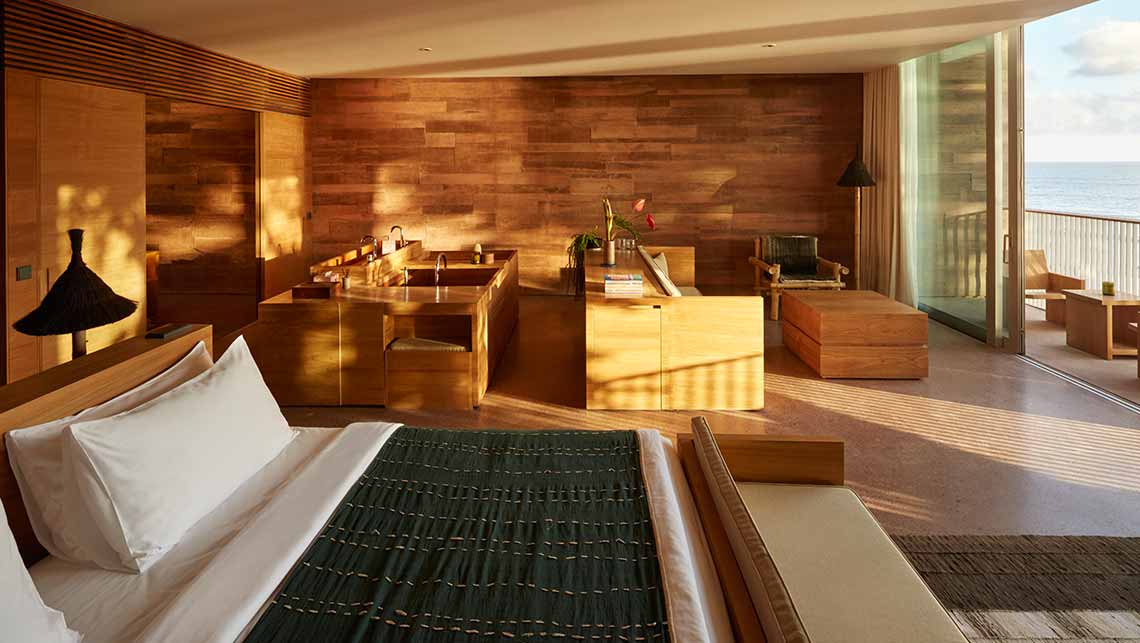
A colossal cultural space is emerging from Petitenget that will shake up Bali’s art and contemporary creative scene and deliver sensory and experiential realities like no other on the island.
Desa Potato Head is on course to be a zero-waste, sustainably driven destination with hotel studios, carbon off-set atms, a recording studio, swimming pools, a library, cinema space, vast exhibition areas, a spa, a kids play and education hub, archives, a Balinese temple, a nightclub, bars and retail space. There will also be two new restaurants added to the seven that the Desa already has.
It’s not precisely under one roof, but several with a vast open expanse in the centre that will house big scale sculptural works by local and international artists. Seating space is abundant from the ground to the rooftops and entry is free.
We know the folks at Desa Potato Head value design – just clock the epic Salvador-Dali-like giant melted mirror ball installation by Rotterdam-based arts collective Rotganzen at the entrance, the largest the group has ever produced.
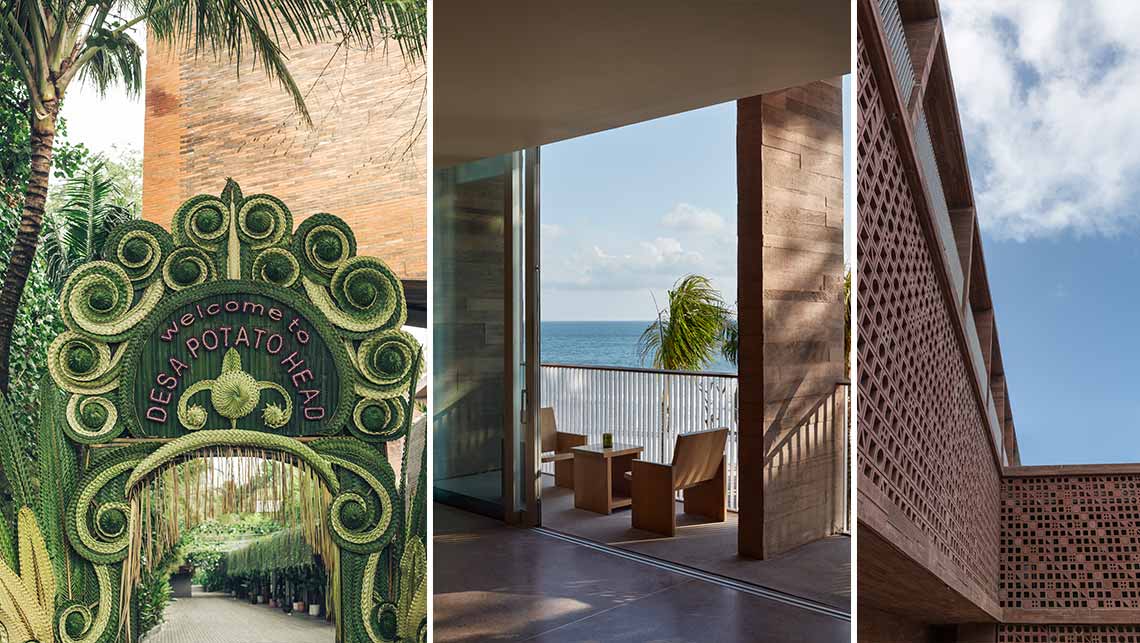
Potato Head also retained the internationally celebrated Dutch architectural powerhouse OMA Rem Koolhaas to design the immense new development led by David Gianotten.
Desa Potato Head is the name of the complete village, which includes the Creative Centre (as well as Katamama and Potato Head Beach Club), where guests are received for sleeping, drinking and dining but also for mingling around and taking in the space. Expect flocks of Insta-famous folk making the most of this impressive prototype that will be open to the public.
Central to the Desa is the hip hotel Katamama – which was crafted from a million ochre Balinese temple bricks – and the famous Potato Head Beach Club. Katamama, with its 57 Suites and aesthetic hewn by acclaimed Jakarta firm Andra Matin, will remain the ‘mother soul’ of the Desa.
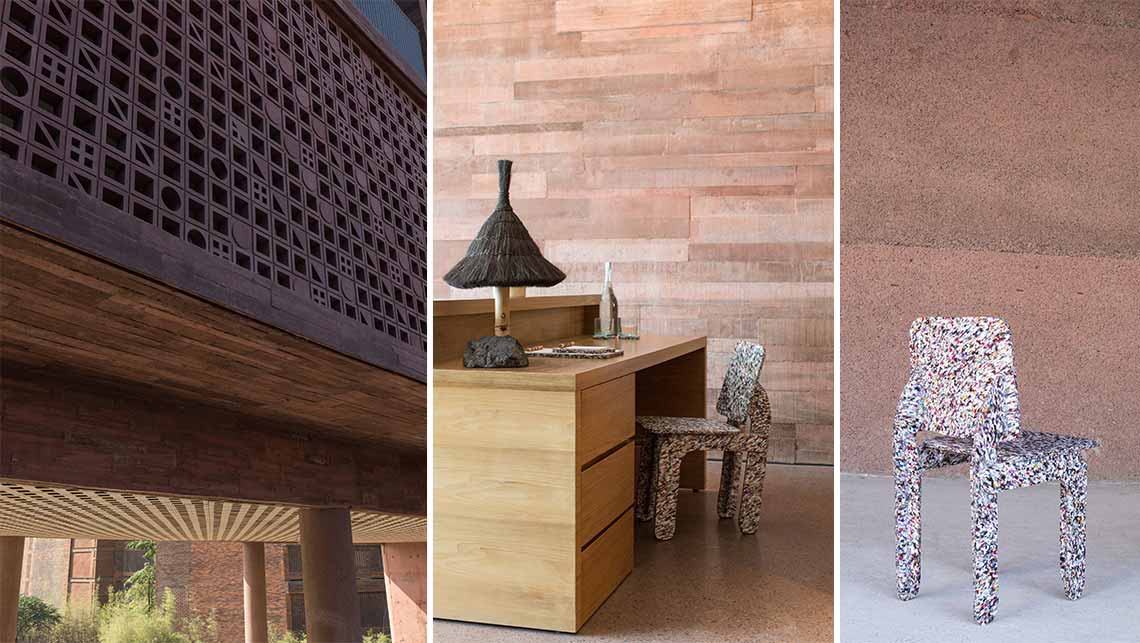
The 168 Potato Head studio hotel rooms in the Creative Centre, which are super chic with wooden bathtubs, will become the cultural heartbeat of the village.
The encompassing culinary identity for the Desa ranges from local line-caught fish at Ijen, to traditional Indonesian cuisine at Kaum or fresh wood-fired pizza and healthy International dishes at the beach club.
Within the Desa there will be a single, impressive, restaurant with a carefully crafted and unique Indonesian plant-based menu. Called Tanaman, it is housed in a retro space-age style dome that is tucked into the ocean facing side of the building. It’s an easy distance to the pool for a post prandial dip.
Visitors will be able to live across the Desa’s unique cultural experiences including a library and archive space, Balinese performances, film screenings, living programs and music events. There will be planned art exhibitions for the multifunctional spaces that will be also used to stage educational projects and workshops.
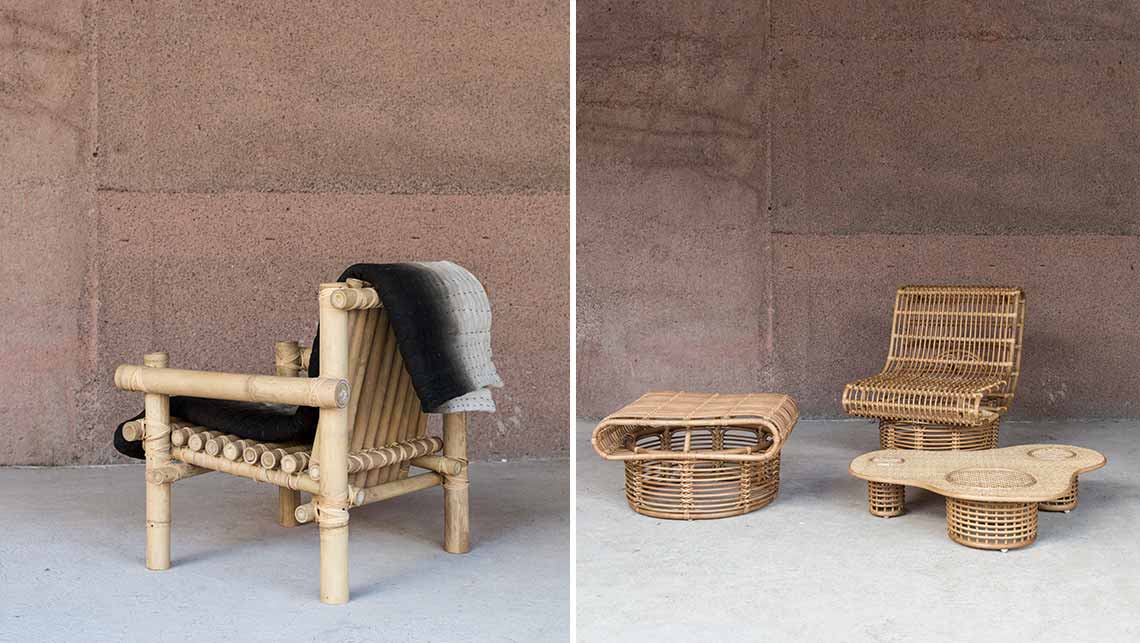
Bali’s chilled tropical vibes and cocktails-by-the-pool-culture is embraced with a long beachfront swimming pool set in a lush lawn with have bars at either end. There is also a rooftop pool within the Creative Centre as well as the multiple pools already established at the beach club and Katamama. There will be an exquisite spa that makes the most of nature’s largesse from fragrant essential oils to time honoured treatments.
A concrete bunker-style underground discotheque, which is discreetly positioned in a quiet corner of the expanse, will be called Klymax. The bespoke soundscape for the club was developed by DJ Harvey – who is possibly the most name-dropped DJ in the world and cult-like legend birthed in that other island paradise Ibiza. Never forget that Rolling Stone named him #10 in its list of the 25 DJ’s Who Rule The Earth.
The interiors in the Desa are set to get the design fiends of the island buzzing, with British furniture designers Max Lab who specialise in extraordinarily beautiful and texturally unique pieces that include pewter poured onto sand or volcanic rock; while chairs by Faye Toogood will beam into the exclusive irregularities of the raw material used in her small scale fabrications. The works of this duo are so much more than items to rest on.
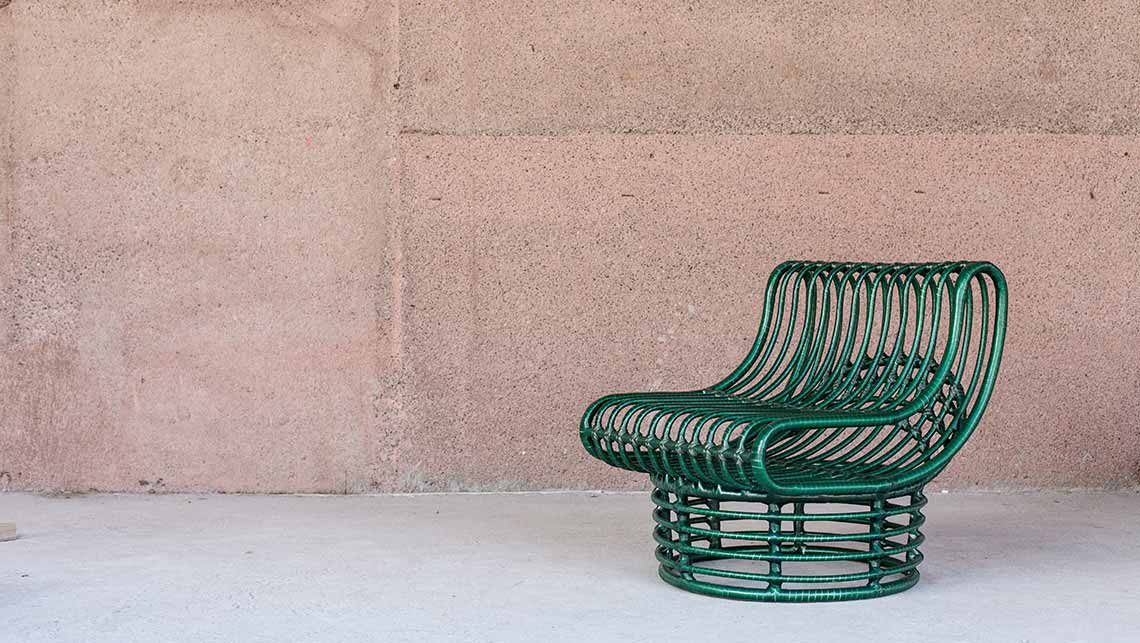
Zero waste can be viewed in the most unexpected places with the ethereally pink external walls of the building deriving their colour from scrap Katamama temple bricks integrated into the render.
The Desa has an education centre for children where the next generations will learn about, and interact with nature’s bounty. There will be no single-use plastic at all, opting instead for recycled materials.
Sustainability and climate neutrality are a major driver within Desa Potato Head – Indonesia’s first hospitality company to be recognised by the United Nations as climate neutral.
From the top – where the solar panels are installed – through to the hotel studio rooms, where baths are hewn from wood and gift bags are styled as a bamboo backpacks and filled with refillable sunblock and mosquito spray. This is a clear statement of the zero waste, carbon neutral framework the business has committed to.
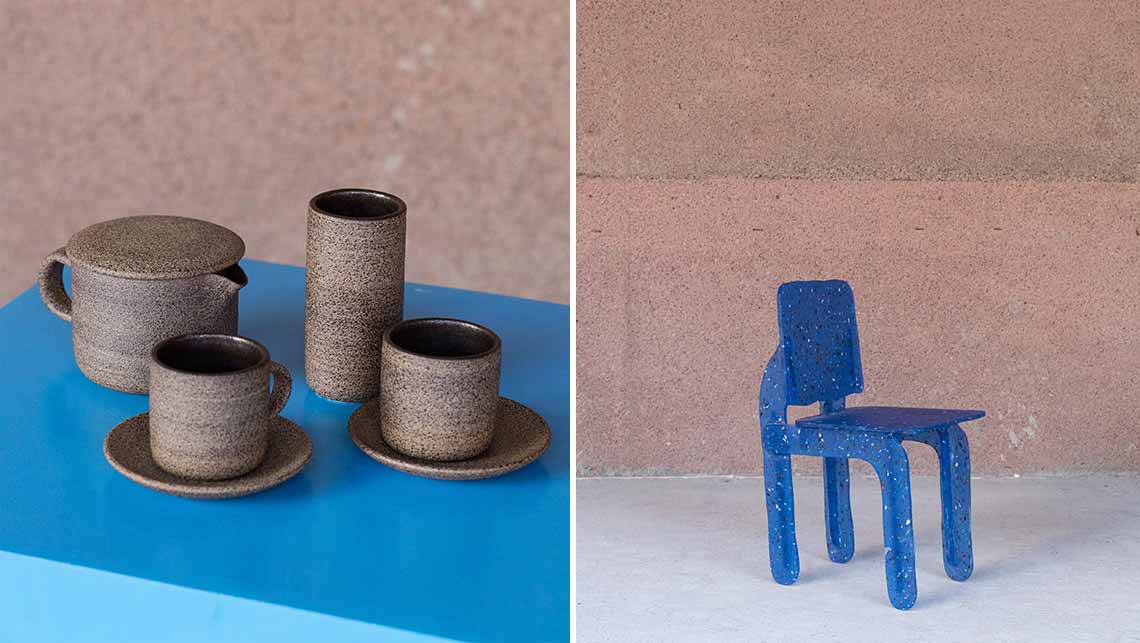
Driving the idea behind the project is the ethos that community and collective power is much greater than any single effort. Think big city urban within a local community of jet set travellers, itinerant artists, locals, expats and anyone else who deems to visit this extraordinary place.
Desa Potato Head aims to captivate every guest by not just offering experiences to be consumed but rather those that encourage a unique level of participation where people will learn a skill or develop an understanding about community, creativity and the importance of engagement.
































